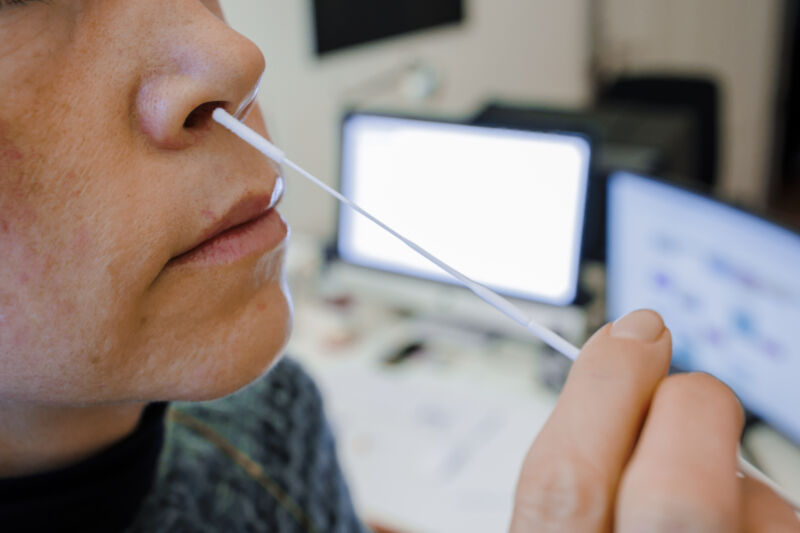Autopsies suggest COVID’s smell loss is caused by inflammation, not virus

Enlarge (credit: Getty | Thomas Trutschel)
Although the loss of smell and taste became apparent symptoms of COVID-19 early in the pandemic, researchers are still working out why that happens-is the virus directly infecting and destroying the cells responsible for these critical senses, or is it collateral damage from our immune systems fighting off the invading foe?
According to a postmortem study out this week in JAMA Neurology, it's the latter. The study-which dove deep into the noses, nerves, and brains of 23 people who died of COVID-19-is the most detailed look at the coronavirus's effects on our sniffers. Researchers concluded that inflammation-not the virus-is behind the loss of smell and taste during a bout of COVID-19, which is good news in some ways. It suggests that treatments with anti-inflammatory drugs could prevent severe or long-term damage to those critical senses.
The finding follows a mix of data on the effects of SARS-CoV-2 on our sense of smell. Some data suggested that the virus can infect the nerves that carry smell signals to the brain-olfactory neurons. Thus, the lost senses could be caused by direct infections. But others found that the virus wasn't present in those neurons at death.
Read 6 remaining paragraphs | Comments